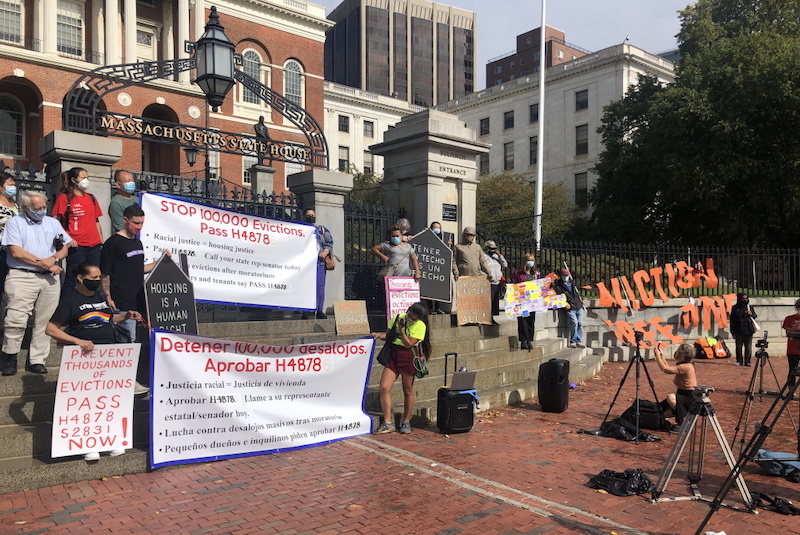Causes
Massachusetts groups rallying in support of newly filed rent control bill

Several Massachusetts groups are getting behind a rent control bill that they believe will have a positive impact on tenants.
At 11:00 a.m. on Saturday at the front steps of the State House, rent control advocates will rally in support of newly filed rent control enabling legislation that “introduces a clearer framework for municipal rent control than other local option bills filed in recent years, with stronger tenant protections and stronger limits on rent increases,” according to supporters.
The bill would allow a city or town to impose a limit on the size of annual rent increases and require that evictions be based on “just cause” by either a local binding ballot question, majority vote of its governing body, by-law, ordinance, or local charter provision.
Exceptions included in the legislation include housing units in owner-occupied buildings with four or fewer units; college dorms; residential elderly care facilities; units subject to regulation by a public authority; and units within their first five years of occupancy from January 2020.
The bills (HD 3953 / SD 1818) were filed by Reps. David Rogers and Montano and Sen. Jehlen.
It’s been nearly 30 years since Massachusetts voters banned rent control in a 1994 ballot question.
Organizers say Saturday’s rally is expected to be the biggest show of support for rent control since 2019, and will include groups such as City Life/Vida Urbana, Right to the City Boston, Homes For All Massachusetts, New England United for Justice, Chinese Progressive Association, Massachusetts Senior Action Council, Lynn United for Change, Springfield No One Leaves and Reclaim Roxbury.
State House News Service contributed to this report.







Gavin R. Putland
January 27, 2023 at 10:48 pm
What’s better than rent control? A tax on vacant lots and unoccupied buildings. While rent control makes it less attractive to supply accommodation, a vacant-property tax makes it less attractive NOT to! Such a tax, although sometimes called a “vacancy tax”, is not limited to what real-estate agents call “vacancies” — that is, properties available for rent. It also applies to vacant lots and empty properties that are not on the rental market, and prompts the owners to make them habitable and occupied in order to avoid the tax.
Yes, a vacant-property tax is meant to be AVOIDED. It’s not meant to be paid. Better still, its avoidance would involve economic activity, expanding the bases of other taxes and allowing their rates to be reduced, so that everyone else—including tenants, home owners, and landlords with tenants—would pay LESS tax!
Alex Jones
January 28, 2023 at 7:59 am
Ahhhh, the stench of communism permeates the Massachusetts air.